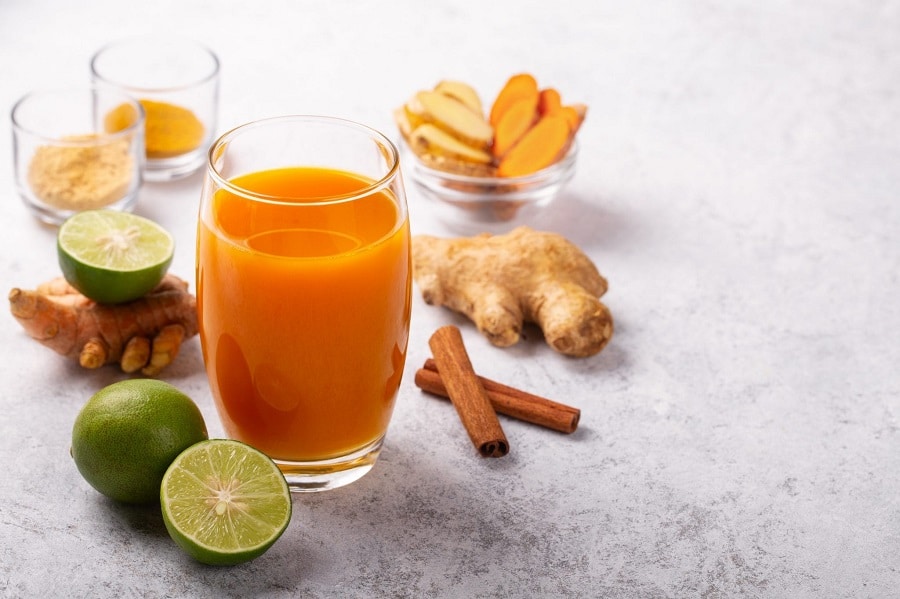Menopause is a biological process that naturally occurs in women after 45, that is, between the age of 45 to 50. After a woman hits menopause, she will no longer have menstrual periods and will not conceive naturally. The onset of menopause happens between the age of 45 to 50 or even 55 years. It has been estimated in the states that around 1.3 million women hit menopause every year. What happens during menopause is that the number of follicles in the ovary keeps on decreasing rapidly. During this time, FSH or the follicle-stimulating hormone also stops developing eggs. Thus the customary surge in the luteinizing hormones typically observed in menstruating women also does not occur.
Consequently, the production of estrogen reduces, leading to the ceasing of menstrual periods. Since more and more women are starting to focus on their careers and delaying childbearing, many women wonder if they can delay menopause naturally. It would allow them to conceive and bear children naturally later. This article would tell you if there is any possibility of postponing menopause naturally, how you can do it and if it benefits you at all.
Contents
Menopausal Symptoms and Treatments

There are a variety of symptoms that you might experience while going through a menopausal phase. At the initial stage, most symptoms revolve around changes in the pattern of your menstrual cycles. Women generally start having very heavy or very light periods. During this time, the frequency of the periods also might change. The menopausal phase lasts more than a couple of years, even eight years, for periods to completely cease. In addition to the above symptoms, you might also experience-
- Dryness in the vagina
- Night sweats
- Mood swings
- Insomnia
- Reduced libido
- Hot flashes
Since menopause is an entirely natural process, treatment is unnecessary. Mainly, women find lifestyle changes to suffice to adapt to the bodily changes. However, some women do want some relief from the symptoms. The available treatment is hormone replacement therapy, but these medications are found not to be too safe. They can add to the risk of breast cancer and heart disease. It’s essential to consult with a doctor before taking these treatments.
Can Menopause Be Delayed, And Is It Good?

For some women, the process of going through all of the menopausal symptoms could get problematic. It might even pose a problem if a woman is planning to conceive in her later years.
There are a lot of ways that you can delay your menopause. Both artificial and natural procedures are available. Recently, a new medical procedure has come up which claims to delay menopause for almost 20 years. Some added benefits of delayed menopause include a reduced risk of fractures and osteoporosis, a longer span for reproduction and reduced cause for mortality, and a lesser risk of morbidities and mortality from cardiovascular or heart diseases such as heart attacks, strokes, and ischemic heart disease.
Ways To Delay Menopause
Throughout your lifetime, there may be several factors that could either accelerate or delay the onset of your menopause. Though more researches are still being done on this subject, that is, on how to increase reproductive life, here are some of the ways that you could delay your menopause.
Lifestyle Factors

Many factors revolve around your lifestyle that attributes to the delay of menopause. Smoking has a reverse effect on the age of your natural menopause and is accelerated by a year or two. There are factors like consuming a moderate amount of alcohol and regular drinking of tea that delay menopause.
Physical Activity

Factors such as a higher BMI at 20 years of age, moderate weight gain during mid-life, and enhanced physical activity during leisure time in the adolescent and adulthood periods contributed to later menopause. It is still unclear, though, how weight gain and exercises contribute to delaying menopause.
Diet

The types of food that you want to consume if you’re going to delay the onset of menopause are proteins and fruits. Consuming more calories also results in the delay of menopause. It may be hard to believe, but researches show a higher BMI or body mass index could mean the delay of the onset of menopause. One British study asserted that consuming fresh legumes regularly and eating oily fish contributed to the uncertainty of menopause too. Researchers also found that the Vitamin D in dairy products also reduces your chances of having early menopause. Since every woman and their nutritional needs are different, you must consult with your doctor before deciding on a specific diet.
Oral Contraceptives

Using oral contraceptives or birth control pills can lower the chances of early menopause; scientists are still not sure why. They theorize that after the egg production stops by the medications’ action, it increases the eggs’ output. Research is still needed on this subject.
Pregnancy or Lactation History

Breast feedings your babies for seven months to a year significantly lowers your chances of menopause before 45. When women who breastfeed for only a month were compared to those who breastfed for two years, studies found that the latter group of women had a 27% lesser chance of hitting menopause early.
Conclusion
All of the above factors do play a huge role in delaying or, in some cases, accelerating menopause. But one of the main factors that are important to consider is genetics. Genetics plays a huge role in determining when a woman starts to develop menopausal symptoms and undergoes full menopause. It is good to do your research on this subject but consulting a doctor or gynecologist would be best. They would be able to give the specific information you need based on your reproductive health and lifestyle.


